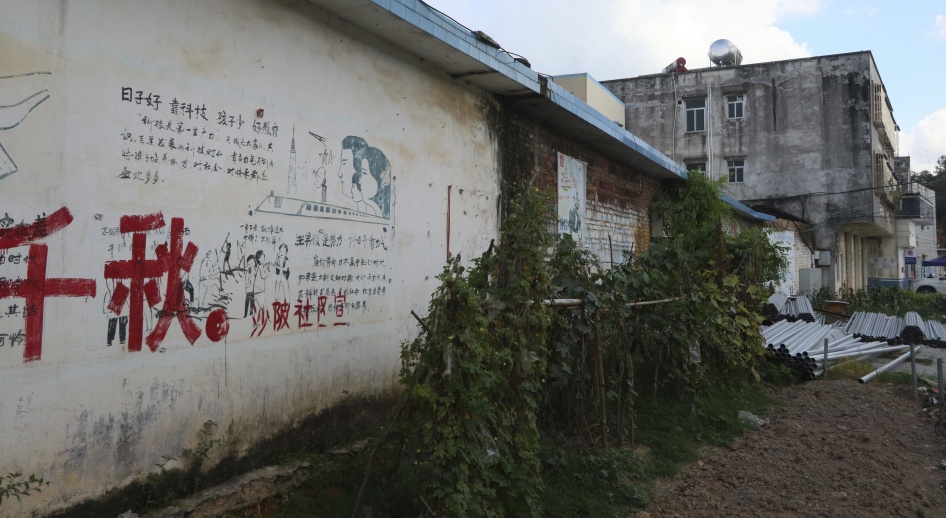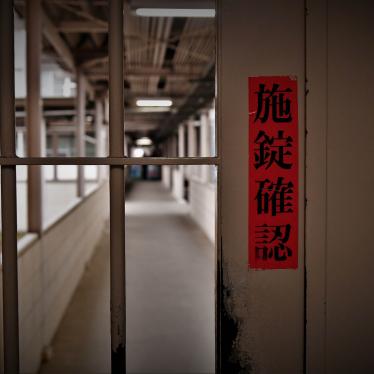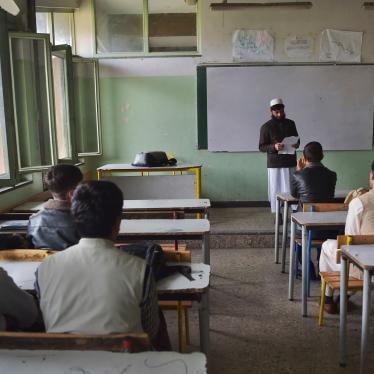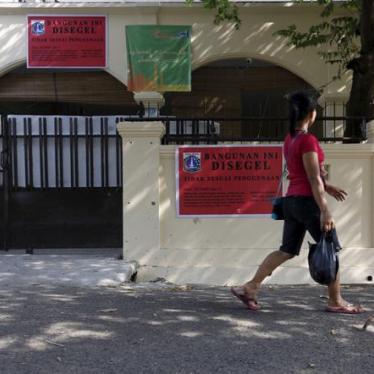Executive Summary:
- Recent data from China shows a decline in fertility rates in the countryside as well as in the cities. This complicates hopes that rural women could alleviate the declining birthrate.
- Demographic decline is increasingly a concern for policymakers. The population was found to have fallen for the second consecutive year in 2023.
- Cultural and policy pressures, including the rising cost of raising children and traditional preferences for sons, contribute to rural women’s reluctance to have more children.
- Mistreatment of girls and women, compounded by factors like poverty and disability, has led to an exodus of women from rural areas. Some rural women have expressed feminist sentiments and a desire to escape patriarchal constraints, leading to migration to urban areas.
- Many women are unwilling to conform to state-driven reproductive policies, likely including a recently announced policy to strengthen reproductive support in rural villages. Taken together, these programs constitute a shift from the punitive “One Child” policy.
In their first policy document of the year, the Chinese Communist Party (CCP) Central Committee and the State Council announced that they would “strengthen reproductive support in rural villages (加强农村生育支持)” (Xinhua, February 3). This is the first time this policy phrase has appeared in the annual document, which usually focuses on rural governance. The policy is part of the government’s pivot away from its punitive “One Child” birth control policy, which was in place from the 1980s until it was relaxed in 2013. In 2021, the government shifted to explicitly encouraging births by adopting “supportive reproductive measures (生育支持措施).” The government says it is now focusing on “developing a high-quality population (人口高质量发展)” (Xinhua, July 20, 2021).
The pivot comes as the People’s Republic of China (PRC) confronts a steep demographic decline. Statistics show that in 2023, the PRC’s population fell in absolute terms for the second year in a row (Reuters, January 17). The number of women of childbearing age has been shrinking for much longer—by around four to five million people every year since 2012. This “crisis” is largely of the PRC’s own making. The government’s One Child policy, which brutally limited the number of births a family could have, compounded the natural decline in the fertility rate and an aging population, both of which are common trends in industrializing societies.
Cultural and Policy Pressures on Rural Women
Some in the PRC had hoped that the solution to the problem lay with rural women (Global Times, July 22, 2015). Around a decade ago, they were having more children than their urban counterparts (The Paper, September 15, 2015). But data from recent years indicate that fertility rates have begun to decline in the countryside too (China Development Observation, July 22, 2022). Studies show that traditional preferences persist among rural married couples, though these have become significantly less pronounced than in the past. Couples continue to want at least one child, seem to continue to show a preference for boys over girls, and women are more willing to have a second child if the first is a girl. [1]
An academic study by a researcher at Nankai University shows that among those born in the 1980s, 60 percent have two children (Huxiu, March 9, 2023). Among the younger cohort—those born in the 1990s—interest in having children is lower. Most only want one child. Both cohorts show a universal lack of interest in having as many as three children.
The cost of raising children, both in terms of the time and financial resources required, is a key reason why rural women are not having more children. This is something that they share with those in the cities. Women in the countryside have more of a voice now than they did in the past—not least because possible brides are now sought after by families, due to the gender imbalance that resulted from the One Child policy. This voice apparently includes decisions over whether to give birth, even in the face of pressure from parents and in-laws, who used to hold complete authority over the fate of married women.
Women born in the 1980s and 1990s have experienced the dramatic magnification of the traditional preference for sons over daughters under the One Child policy. Consequently, they grew up thinking that women and marriage is a bad combination. Some may have seen how their mothers who became pregnant were subjected to forced abortions by the PRC’s abusive family planning officials. Some witnessed how their parents gave away their sisters—“out of quota girls (超生女)”—to be raised by extended family members so that the parents could try for a boy. Some knew baby girls were abandoned (millions of girls are estimated to be “missing” due to infanticide and forced abortions). [2] [3] They also experienced how their mothers, internalizing such oppression, recriminated them for being born, spending relatively little time or energy raising them (CDT, November 28, 2020). They were told from a young age that they were unwanted, that they were not part of the family, and that their parents were looking forward to marrying them off (Sina, May 29, 2023). Some even witnessed and experienced domestic violence.
While it is impossible to properly gauge Chinese public opinion given due to severe censorship, on less sensitive topics the mainstream social media site Zhihu offers some clues (Zhihu, October 29, 2023). Some of Zhihu’s popular threads suggest that some women who grew up in the countryside show strong feminist sentiment, and a desire to not conform. In response to a question on gender discrimination, one woman, born in 1985, wrote about her experiences growing up in Feng County, a rural area in the relatively prosperous coastal province Jiangsu. Her post received over 11,000 likes and 3,000 comments (CDT, February 21, 2022):
My mother…became pregnant with a second child, my sister. At that time, in the countryside, if the first child was a girl, [parents] were still allowed to have another child. Unfortunately, the next child was my sister. My mother cried at that time. After she finished crying, she snatched my sister and was about to strangle her when … it was my dad who made the final decision: “Why strangle her to death? She’s been born, later we could always give her away.” So, my sister survived by luck. Until now, my mother would still vividly tell my sister, that “If it wasn’t for your dad who pitied you, you’d have been strangled to death by me.” She didn’t think this matter was serious because everyone did it this way.
These two sisters grew up as the family’s de facto maids, looking after their younger brother who never had to lift a finger to help out at home:
I started washing pots and pans when I was five years old and started cooking for the whole family from first grade…my sister and I [learnt to be] proficient in everything. If we slacked off a little, my dad would start hitting us immediately.
Mistreatment of girls and women has often been more severe the more disadvantaged the girls are. This is especially true in poorer and more remote areas, or if the girls have disabilities. In cases where girls are both poor and disabled, the mistreatment can be particularly acute. One such case in 2022 shocked many in the PRC. Xiaohuamei (小花梅), a woman believed to have a psychosocial disability, was found chained at the neck in a ramshackle hut in rural Jiangsu province. She had been trafficked twice and held in the home of a man who may have forced her to bear him eight children (HRW, June 7, 2022). Such environments which can be hostile and dangerous for women contribute to the decisions of young women today to flee their families and the places they were born. This was not an option for previous generations, such as that of their mothers. Women born in the 1960s and 1970s had few choices but to stay due to the enforcement of strict controls on movement.
Voting with Their Feet
There has been an exodus of women from the countryside in recent years. This phenomenon is not exclusive to women—there is an overall trend of rural to urban migration in the PRC. But the departure of women in particular has generated concerns. One county in Hunan province went as far as saying that it is encouraging women to return or stay in the countryside so the unmarried rural men—known as “bare branches (光棍),” and who outnumber women—can have wives and children (The Paper, October 11, 2021). However, many of those who have left appear determined not to return.
Some women—including those who say they grew up in villages—have expressed stridently feminist views. In a separate Zhihu thread, viewed over one million times with nearly 400 comments, a young woman from Shaanxi, who now lives in Shanghai, wrote (Zhihu, October 31, 2023):
Women have never had the right to call the shots in the countryside. If you can take the initiative to embrace “traditional” society, [the patriarchy] will transfer some of their power to you. If you are “deviant” like me, they will leave you without any power.
Rural government officials also routinely deny women their right to use rural land (Yixi, April, 2022). The same woman commented on this, saying that “while sometimes I have thoughts of returning to my hometown … [but] all the land … belongs to my brother.” She laments that even trying to have her body returned to her village to be buried would not be an option. So now she would “rather run away like the Yellow River … never to return.”
These sentiments are shared by many others. A young woman from Zhejiang wrote:
I have always been indifferent to those who say they’re escaping Beijing, Shanghai, and Guangzhou and returning to their hometowns. For girls like us who grew up in a patriarchal environment, there is no hometown.
Another said she had escaped to Beijing:
It didn’t matter how my family pressured me to get married … that dozens of relatives took turns bombarding me—I would not marry. After I couldn’t stand them bothering me [any longer], I took 200 yuan with me and quietly ran to Beijing. I found a home on the outskirts of the city … and although I had no money, I ate steamed buns every day … I would rather die than to stay in the countryside” (Zhihu, January 15).
Many who do stay in or return to the countryside to start families do not seem to have much time or energy to devote to their children, let alone to “develop a high-quality population” as the government desires. Instead, tremendous financial pressures continue to force many rural couples to work as migrant workers in the cities, leaving their children behind. This is because government policies discourage rural children from attending schools in cities. One in five children are “left behind (留守)” with other relatives in this way, according to official statistics (China Release, May 12, 2023). They are vulnerable to bullying and other abuses (The Paper, March 26). An academic and a social worker has observed that some mothers, who themselves lacked love and attention from their own parents growing up, appear unable to love or care for their children (CDT, December 6, 2020). The academic noted that some of these young mothers consider going to cities to work “as the best excuse to escape from bringing up their children.”
A sociologist affiliated with the Shanghai Academy of Social Science’s Institute of Sociology who studies rural development remarked that while the physical infrastructure of the PRC’s countryside has improved as a result of President Xi Jinping’s signature “poverty alleviation” initiative, “there are more and more problems in rural families,” including multiple divorces and abandoned children (QQ, March 2):
Women who go out to work cannot stand the same men when they come home. … [W]omen sacrificing their own happiness for the family have become a thing of the past. Living a free and unrestrained life has become the dominant value … Women who cannot support a family are no longer willing to pay blindly and choose to escape.
Conclusion
The PRC government’s efforts to boost the birthrate so far have focused in part on technocratic solutions, often borrowing solutions from other countries. These measures include providing more maternity leave, housing and tax benefits, and cash handouts. In the countryside, the government has also tried to address bride prices, which have risen to “astronomical” heights in recent years due to the gender imbalance. Official actions have also included waging publicity campaigns (CCTV, February 12, 2023). At an October 2023 All-China Women’s Federation meeting, President Xi Jinping told the cadres there to “guide women to play their roles in carrying forward the traditional virtues [传统美德] of the Chinese nation” and “in establishing good family traditions” (Xinhua, October 10, 2023). They should “actively cultivate a new culture of marriage and childbearing (新型婚育文化)” among women, so they can “improve the quality of population development” and “respond to the aging of the population.”
Many of these measures are important and positive. They may even help some women to better care for their families. However, for this generation of women, many are unwilling to turn their bodies on and off depending on the needs of the state. The government’s pivot from a coercive to a supportive model of birth control has thus come too little, too late.
Notes
[1] 高杨 邹丽. 城市与农村育龄女性二胎生育意愿及生育行为差异研究[J]. 中国计划生育学杂志, 2020, 28(4): 475-. http://manu27.magtech.com.cn/Jwk_jhsy_new/CN/
GAO Yang, ZOU Li. Research on the difference of fertility intention and behavior of the second child of females of childbearing age from urban and rural areas. 中国计划生育学杂志, 2020, 28(4): 475-.
[2] Wall, Winter. “China’s Infanticide Epidemic.” Human Rights & Human Welfare. Vol. 9: Iss. 1. https://digitalcommons.du.edu/hrhw/vol9/iss1/51
[3] Shi Y, Kennedy JJ. Delayed Registration and Identifying the “Missing Girls” in China. The China Quarterly. 2016; 228:1018-1038. doi:10.1017/S0305741016001132







